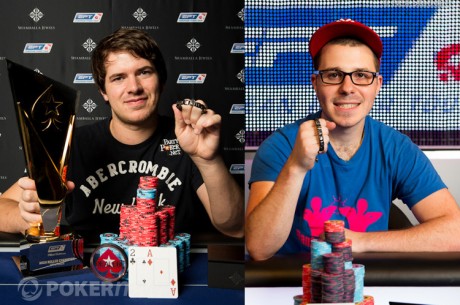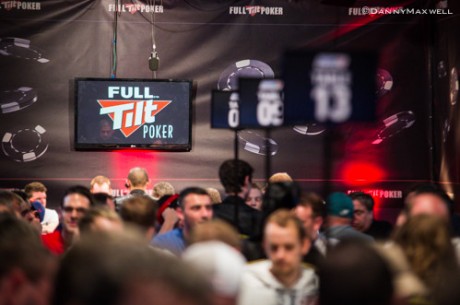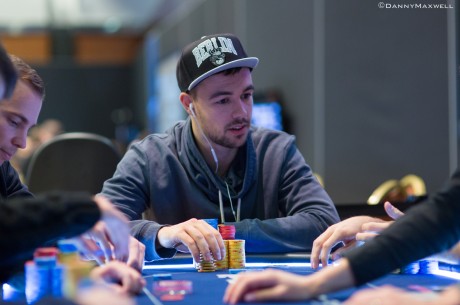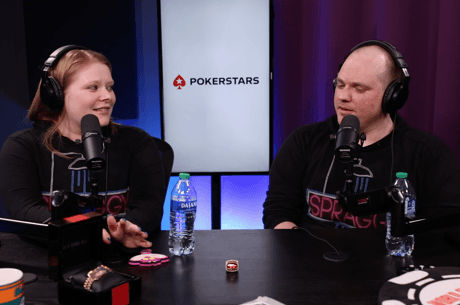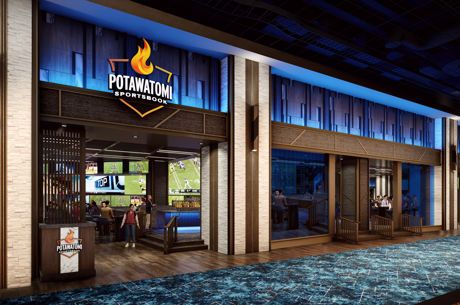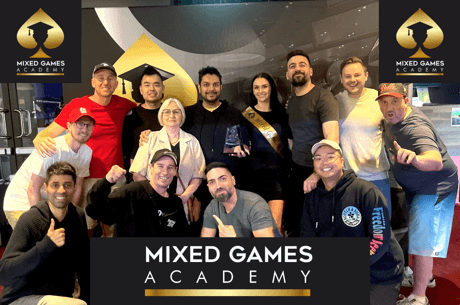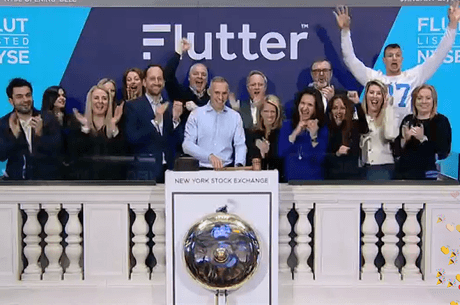Alex Dreyfus Discusses GPI, HendonMob, the State of U.S. and European Poker, and More
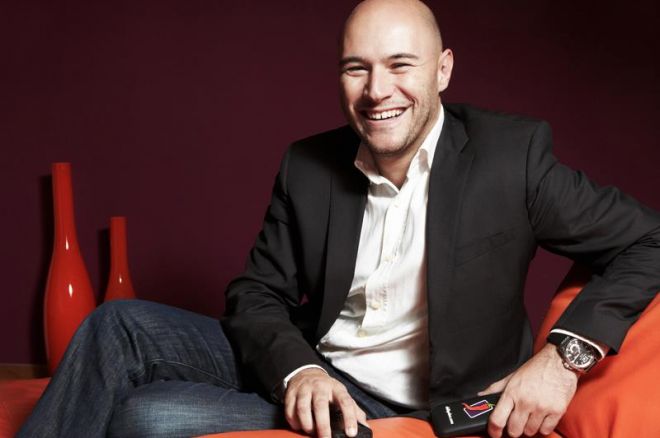
Alex Dreyfus is a man you might have never heard of before, or one that you vaguely know of being involved with the Global Poker Index (GPI), but not much more than that. Whichever the case, Dreyfus is certainly a man to keep an eye on in the poker world, as he's been walking around in it for quite some time, is highly connected, and the mastermind behind Zokay Entertainment, which owns and operates the GPI and the HendonMob poker database.
As one of the co-founders of Winamax and the guy formerly in charge at Chili Poker before he sold it to Bally Technologies, Dreyfus could have used the money he made to go on an life-long vacation, but he didn't. He instead focused all of his attention and resources on the poker world, and he seems to be here to stay.
He's an entrepreneur pur-sang, someone who sees opportunities everywhere, but he's not closing his eyes for threats either. Instead, he's actively involved to tackle them before they grow to big. Dreyfus is lobbying in America to do everything in his power for online poker to get a foothold, and he knows his stuff about the European market as well.
Recently, PokerNews talked to Dreyfus about all of this and more.
PokerNews: When the Epic Poker League went under, you were the one to snag the GPI away. What made you interested in that specific part of what was up for sale?
If you want to grow poker, if you want to make poker more successful than it is today and back on what it was a few years ago, you have to expose it. And what is the best way to expose poker? That is to expose the players. That's the basis for me.
What is the best way to expose players? A ranking [system].
Every single week we have something to say. The fact that Ole Schemion is first and Daniel Negreanu is now in second isn't the real important part. What is, are two things. First; we give an opportunity, an excuse if you will, to talk about these players and why they are going up and down because of all the events that they played. This way, we give exposure to both the players and to the events, so it's good for the industry because we talk about live poker events.
To be honest, the live poker industry and live poker events are the only ways to talk to mainstream media about poker, I think. I understand that a lot of the PokerNews readers are online players, but it's kind of boring to say that this particular nickname won $300,000 in a tournament when the name is not very easy to talk about or remember. With online poker, most of the times there are no pictures, there's no story. The whole GPI thing is about helping poker media and — it's maybe going to take a few years — mainstream media to talk about poker. To have something to discuss about poker in a very structured way.
The other thing is that we need to create new poker stars. Schemion is someone, and he's actually a very good example, but you won't see him doing lots of interviews. He doesn't want that, but the reality is that we actually need to show more poker players. We need to escape from the last 11 years where everybody knew just the Full Tilt Poker players and, more or less, a couple of PokerStars players. We need to change that because the only way for poker to grow is by creating stars, and the only way to create stars that are not sponsored is through rankings.
As a small poker player, maybe with an online background, reading about Chris Moorman who's a very good online grinder and winning live as well, that's inspiring. There's pictures, there's a real story to be made. It's maybe going to give me the idea or the will to play live. Every online poker player dreams to play live at least once in his or her life. Just to meet these champions. There are celebrities like Negreanu, Phil Ivey, etc., but it has been 10 years now, 14 years I would even say. Now, we need to go to the next stage. We need to build the new celebrities.
We need to help the community to endorse these new players. I don't want to be compared to a reality TV show like Big Brother obviously, but the TV system allows you to constantly have new celebrities. With reality shows, TV constantly creates new celebs. In poker, we need to expose more poker players because we don't want to be stuck with the same names forever.
If I hear you talking like that, it's clear you're heavily focused on live poker, but you do have a collaboration with PocketFives. What is that about?
We're sharing some rankings and data. If you go to a profile on the GPI or HendonMob websites you'll see the latest online results from these players. It works the other way around, too; on PocketFives you can go to Moorman's page and you'll see his live poker results as well.
I'm not a strong believer that we'll eventually have rankings that mix online and offline. Online rankings cannot be accurate for several reasons. One of them is the anonymity of the players. I don't know who "player XX777" is if he doesn't give me his name. And this player is playing on PokerStars, Full Tilt, partypoker, 888, and other sites and skins. We cannot aggregate data of all poker tournaments and we can't actually merge these results. Because of that, you can't create an online ranking that makes sense. You just cannot do it.
So online results will never have an impact on the GPI?
No, definitely not.
A lot of people are wondering what the business model for the GPI is. Could you explain?
First of all, this is more my problem than your problem, but I see where the question is coming from. Don't forget that we have HendonMob.com as well. So GPI and HendonMob, though they're two different products, it's the same entity, it's the same company and the same traffic. Both websites together are generating more or less 400,000 visitors a month.
Our first business model is obviously to sell advertising. We sell advertising to land-based casinos. We don't sell advertisements to online poker rooms because there is no real model for us for that. We sell advertising to casinos that run live poker events. That's one thing and that's actually a significant amount of money that we are generating through the advertising because we have a significant audience. That's one thing.
The second thing is that we actually are starting to monetize data. That's something people don't understand, because they don't see it and they don't have to. We are becoming a company that's supplying database management. What does that mean? It means that today we are already aggregating results of every casino in the world, right? Thanks to that, we can actually help casinos to have the results of their own events in a very structured way on their own website.
It's gonna look silly, but the reality is that most of the casinos don't even have the results of their own events on their website. Sometimes they have a PDF file, but that's it. You can't click on the players names, it's not displayed in a structured way. A lot of the times, they even have mistakes in their results. Since 10 years we are aggregating this information, and the players have made the HendonMob the authority database. Every single day we receive hundreds of emails with feedback from players. They say stuff like "This is my result," "This is different," "That's not me, that's a different player," etc. So our information is actually more accurate than the information from the casino itself, including the World Series of Poker, for example.
These companies are now paying us to provide them back information about their own live events. It's what we call a business-to-business provider. We have other things that I don't really want to disclose because it's not for the mainstream to know, but the reality is that there is a business model behind the GPI and HendonMob and its not something that is for the players and the visitors, it's something that is related to the industry. It's the way we monetize and help casinos to help them understand their customers.
You're investing a lot of money it seems.
It's like in a poker game, I'm very much committed. I need to go all in. As my friend Bertrand "ElkY" Grospellier always tells me, "No challenge, no glory!"
I'm not afraid of taking risks, in both my personal and professional life. In the end, I'm losing money at the moment, but it's not a charity, it's an investment. I'm proud that my efforts are allowing 20 people to work and live out of my ideas. Whatever happens, I would have been useful somehow. A drop in the ocean.
There have been several discussions about the GPI. The first is the one where people complain about high roller events counting for too much in the score. I even saw you flew over to L.A. to talk to Phil Hellmuth about it. What's the current state of that discussion?
I didn't fly over to talk to Phil, I had already planned to go to L.A. that week. I told him, "I'm going to be in L.A., do you want to meet?," but he never replied. We were in the same room at the same time anyway and I went over to say hello. We had these funny pictures and a friendly discussion. I don't know why he sent out that first tweet, but he was clearly misunderstanding what we are doing. Eventually, he did understand as you could see in his later tweet.
First of all, we showed that we reduced the weight of big events since the first of January this year, though a lot of people didn't know that. Secondly, we showed that the events that were above a certain amount were actually counting up to just 10 percent in the ranking or something like that. So it wasn't the high rollers that were key to winning certain rankings. It shows that the formula is pretty accurate and makes sense. The debate is somewhat half wrong because numbers never lie, and we showed that our model is actually pretty valid.
And then there's a discussion about the formula, which isn't disclosed...
You drink Coke every day, but you don't know how it's made. But you still like it. For the GPI, it's the same. Yes, we don't disclose it because it's patent pending, but secondly because it will not change anything. Every single parameter is disclosed. We definitely want to be transparent and for two months now we show how many points are earned per event on every profile. So, let's say you go to Dan Smith's profile. You'll see two columns. You'll see the GPI and the POY ranking, and you will see the points earned for both rankings per event.
Aren't you afraid people will be able to decompose the formula if all the variables are disclosed?
If they can, they can. I don't think it's possible unless you are super good in mathematics. But if they can, fair enough. I'm not against it. Just for now, for the time being, we keep it as it is. We changed it two times already and we will again change it next year. It's funny that people are debating it because I don't see the point. As long as you know exactly how much you earn per event, I don't see why it matters that much.
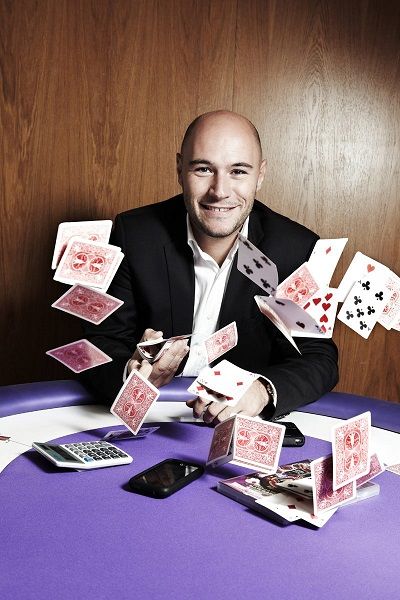
Why are you personally so passionate about the GPI and all these numbers? What drives you?
It's definitely not because I'm a poker player, because I'm not. On April 22 it was exactly 10 years since I decided to move into the online gaming industry. Why I like it? I'm an entrepreneur and 18 months ago I decided to go with GPI and all this stuff. The seven years before it, I was running Chili Poker, the company I then sold to an American group. Before that, I was the co-founder of Winamax. As an entrepreneur, which I've been for 18 years, I was looking for another adventure, another challenge to run. I could have gone on holidays for a few years, enjoy life and indefinitely leave the poker industry. I had no ties anymore, but as an entrepreneur I couldn't sit still like that.
At that time, it was for personal reasons as well that I wanted to stay in the poker industry. And I really like the market, the people that I meet, I like that it's very international. In poker, you have people from all over the world. You're traveling a lot, which is very expensive unfortunately, but still it helps you to see some other things in the world. I learn every single day thanks to this company and thanks to the market.
I'm a strong believer that the industry has a huge potential. I think we can be more mainstream, and I think poker is an amazing sport. I'm saying sport, but in the end it's a game, of course. I do love the game of poker. I don't like to practice it because that's not my skill, I'm to impatient for that. But I do love the game. I love the thrill of the game, I love the sadness and the fun of it.
You say you see huge potential. Where do you see things going?
I think that we have to wait for the U.S. and especially California to open online poker. You may not know this, but I'm very much involved in the U.S. online gaming industry. I sold my company two years ago to Bally Technologies. For the last three years, I spent more or less a week to 10 days per month in the U.S. I'm talking to every single casino and every single operator, etc. I know more or less how it works, I understand the politics.
I believe that once California — and it will happen but it might take a while — is going to open, it's going to have a butterfly effect. A butterfly effect in the way that there's real money going to be spent by partypoker, by the WSOP, and hopefully somehow by PokerStars as well. These companies will actually give a fresh blow of air, it's going to revive poker. Whatever these guys are going to do in California, they're going to do in other places to promote poker. Not only in California, but also globally. They're going to spend money on TV and those TV shows will be broadcasted everywhere because that serves their interest.
Why is California so important? There's already online gaming in Delaware, New Jersey, and Nevada, right?
The New Jersey market is actually a market of $70 million more or less. In California, it's at least $300-$400 million. All the marketing that's going to be spent in California will be 10 times bigger than in New Jersey. And besides, in New Jersey there's online gambling as well. In California it's going to be just poker. So, 100 percent of the marketing dollars spent in California will be poker related, while in New Jersey 90 percent is related to casino games because that's much more profitable.
The second thing is that you have eight casinos in New Jersey that can be subject to online licensing, while in California you have 180 possible licensees. The competition in California is going to be much stronger. And California is Sillicon Valley, it's Hollywood, it's Los Angeles and it's the celebrities. You have much more opportunity to find marketing tools to promote online poker in California than in New Jersey.
In California, you have The Bike, Commerce Casino, Pechanga, Bay 101, etc. All these casinos have significant poker rooms, something that doesn't exist in New Jersey. The poker market is 10 times bigger than in New Jersey, so the marketing which is going to be spent there is much higher.
And because it's a technology kind of capital, it's definitely going to help spread poker all over the U.S. and all over the world. So yeah, I do believe that California is going to be the start of the revival of poker, and we do need that. You know what made poker successful? It was PokerStars and Full Tilt Poker spending a lot of money. But that was 10 years ago. For them to again spend that kind of money, they need a new market. California is the only place they can spend a significant amount of money and know they're going to recover it.
Why are you having all these talks? Are you a lobbyist, or is this all for the GPI and other ventures?
It's a little bit of lobbying, that's for sure. I used to meet regulators and I would meet politicians as well, especially in New Jersey. That's what I used to do, now it's a little bit more for GPI and HendonMob.
Help isn't the right word because it sounds a little bit arrogant, but I do want to help. The reality is that the stronger poker companies are, the better it is for us. And with us I mean the industry and the poker ecosystem. Because of my experience and my money somehow, and as well my tools — meaning HendonMob, GPI and some other things — you'll see in the upcoming three months, we can help each other.
Instead of these companies fighting each other, I think they'll start to work together a little. The GPI is the company that could be mutual and in the centre of this ecosystem. Right now, we're the only company that's working with all the major parties: the European Poker Tour, World Poker Tour, WSOP.
I want PokerStars to help us, but I also want partypoker and 888 and WSOP, because I believe we can help each other. We don't have a conflict of interest. We don't run a poker tour, we don't own any online poker room, and we will never. That's one of the reasons Epic Poker failed at the time. Epic Poker wanted to become an online poker room, they wanted to run their own events. We don't want that. We want to be agnostic because we believe that for poker to be more successful, we need to stop these little conflicts of interest and these little fights. There is some common ground. I believe, and that's both naïve and arrogant, that the GPI will actually be this missing bridge between all these companies.
You focus heavily on the American market when I asked you about the potential you saw. What do you think about the movement in Europe with more and more segregated player pools in regulated countries?
I, as a former online poker operator, don't think it's good obviously. But it's happening and we can't change it. It's too segregated right now. But I think, as an example, that the Netherlands has plans for shared liquidity right? That's a very good thing, so there are more positive developments as well.
I can't blame regulators and governments to actually try to regulate it and get a piece of it, but they're trying to make money out of a business that they don't understand. I just hope that they will do it in a way that won't kill poker and instead will help it grow a little bit. I like monopolies and I like PokerStars, they are my sponsor and my partner, but I like competition even more. Competition is the only way to drive innovation and it's the only way to grow the market. So the thing we need to make sure is that regulation will help innovate and grow the market, and not just kill and collect taxes. That's my biggest concern if you ask me about the developments in Europe.
Something completely different now — HendonMob used to be one of the ugliest websites on the planet. When you bought the company, I had good hopes you would redesign it. You did, but it's still not pretty.
Wait two weeks (laughs). We have a new website in two weeks. I don't like the GPI website as well, by the way. And I don't like what we've done with the new website of HendonMob, either. But we had to do it a little bit fast, that was the reason.
But just because it's ugly, doesn't mean it doesn't serve a purpose. We still have 400,000 people going to this website every month because it's the right content. But yes, it could be better and I hope that what we're going to release in two weeks will actually fit to this need. It's definitely going to be more clear, more white and more clean.
In the end, it's a website where there's a ton of data, though. It's not a content website, it's not a news website. It's about data and that's what we show. But I take the point.
You banned someone from your list last year. Do you think the GPI needs to fulfill the role of ethics commission as well?
It's not about ethics, it's about fairness. With that I mean that we will never remove anybody from the ranking or make an official statement about ethics for something outside the table. If tomorrow Howard Lederer would make a comeback and somehow wins 10 tournaments and makes it into the GPI Top 100, we would not ban him from the list. He played at the table, he won the tournaments, he gets the points and he will be on the ranking. End of the story.
The case you're talking about is different. I'm very much involved in this one because it's a French one. Technically, the results are there, but now we got damning material. It's not like these are just rumors we heard. No, we got proper material to say that these players displayed unfair behavior at the table. The video came to us and we asked the Top 50 of the GPI and the top tournament director in the world about it. They all acknowledged that these guys were indeed cheating.
I own the company and I don't want to spend my money and then have people that got caught cheating on TV in my ranking. I don't want somebody coming up to me and saying, "Alex, your ranking is bullshit because in the Top 100 you have this guy that cheated. Why is he in your ranking?" I don't want that. I don't want to give mainstream media the opportunity to say "Live poker is rigged. You can cheat and nothing will happen to you." We don't want that. We want to have a fair game and fair behavior at the table.
So yeah, I still stand behind the decision. The industry needs some authority to help promote more fairness at the table. We don't need a bad image.
What's up for you next?
Well, the websites are getting redesigned. Both the GPI and HendonMob are going to be very similar, so that will keep me busy for now.
We're going to be at the WSOP again. Last year, we were there for six weeks. That was the first time for us, we were kind of a nobody. I think we've done a good job this year and we'll be closer to the players. We have our booth again this year and our team will be at the WSOP for six weeks to meet players, answers questions and show our products.
We have a few good things going to happen, but I can't just tell you about it all yet.
Any poker for you? Or are you still too impatient?
I'm definitely too impatient, but there will also definitely be some dead money in some of the side events of the EPT Grand Final in Monte Carlo. I will spend a week there. I really want to meet you guys again. Last year, I rented a meeting room and I did some meetings with players, and I want to do that again.
Any last life lessons from someone who's seen a lot?
Life is about smiling, and work, too. For me, that's very important. It's my biggest frustration in an interview like this that you don't reproduce my smileys (laughs).
Get all the latest PokerNews updates on your social media outlets. Follow us on Twitter and find us on both Facebook and Google+!

